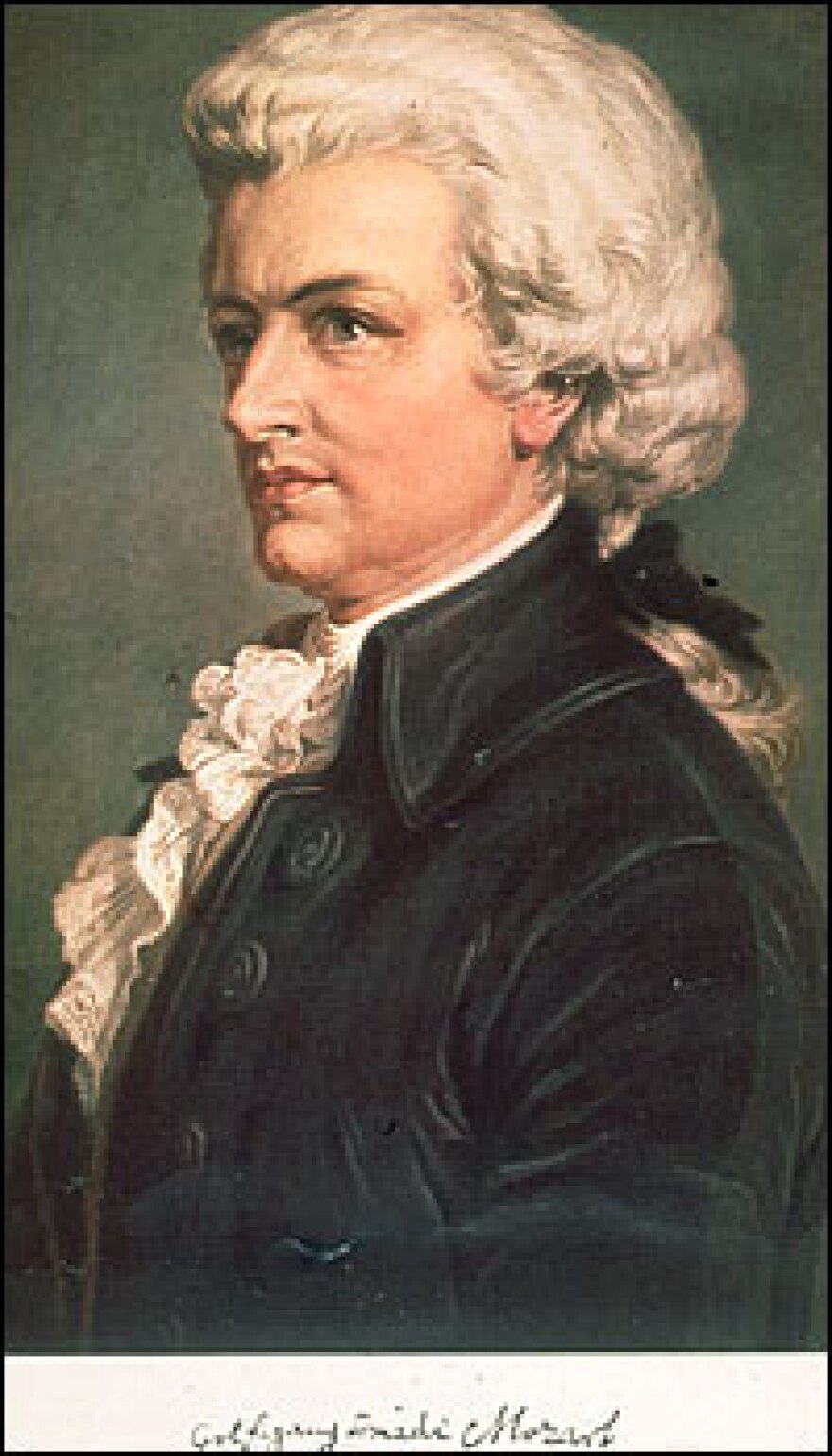
BACKGROUND: Mozart's The Abduction from the Seraglio was an instant success when it premiered in Vienna on July 16, 1782.
"My opera was given yesterday with big applause for the third time," Mozart wrote in a letter to his father on July 27th. "In spite of the terrible summer heat, the theatre was packed." Mozart added, "it really feels good to hear this kind of applause."
The opera's story of virtuous women rescued from a Turkish harem was popular subject matter for the day. And the fact that Mozart spiced up his music with Turkish-sounding percussion and piccolos helped push the opera into venues in 40 different cities during the composer's brief lifetime.
ACT ONE: The opera takes place on the coast of Turkey in the palace of the Pasha Selim. Mozart sets the Turkish tone immediately in a rambunctious overture that scurries with tinkling triangles and a high-piping piccolo, each used to imitate the sounds of Turkish Janissary bands.
Belmonte has traveled from Spain to rescue his beloved Konstanze and her maid Blonde, who have been kidnapped by pirates and sold to Selim's harem. Belmonte's servant Pedrillo, a sweetheart of Blonde's, was also part of the kidnapped crew.
As soon as he arrives, Belmonte stumbles across Osmin, the surly overseer of Selim's palace. Although Osmin is grumpy, Mozart starts him off with a little love-ditty to sing with a few subterranean low notes thrown in for good measure. Belmonte is happy to see Pedrillo, but is even more thrilled to learn that his Konstanze is still alive.
The Pasha, complete with entourage including Konstanze, arrives by boat. No matter how much wooing, or threatening, Selim tries, Konstanze makes it clear that her heart belongs to someone else. At first Mozart planned to give the role of Selim to a tenor. But since he already had two — Belmonte and Pedrillo — he changed his mind and the Pasha was turned into a speaking role only.
Pedrillo's plan to introduce Belmonte to the Pasha as an architect seems to work. Selim hires him, but the two have an awful time trying to get past Osmin at the Palace gate.
ACT TWO: Blonde and Osmin are in the garden of the Pasha's palace. Although Selim has given Osmin free reign over Blonde, she takes the upper hand. "I'm an Englishwoman, "she declares, "and I defy anyone who would attempt to enslave me."
Meanwhile, Konstanze is still sad over her separation from Belmonte. And when the Pasha promises torture as reward for her stubbornness, she responds with the tour de force aria "Martern aller Arten," declaring that "tortures of every kind may await me...but nothing can shake me."
After the two leave, Pedrillo explains to Blonde that the escape plans are set for that very night. First order of business is to get Osmin out of the way by plying him with liquor. Then Belmonte and Konstanze meet at last.
Together the two couples exchange their happiness and hopes. It's a joyful moment, but in the middle of Mozart's ingenious quartet there's a distinct moment of melancholy as the two women convince their men they've remained faithful even while trapped in Selim's harem.
ACT THREE: Outside the palace, Pedrillo gives the signal for escape by singing an old tune. But as he and Belmonte's rescue is in full-swing, a guard spies their ladder. The foursome is brought to Osmin, and then to the Pasha who hands them each a death sentence.
In a last-ditch effort to impress the Pasha, Belmonte reveals that his father is a big-shot governor. That ploy backfires when Selim recognizes the name as that of his greatest enemy. Belmonte's father, Selim claims, stole both land and money from him.
As they await their death, Konstanze and Belmonte claim they would each die for the other. But the Pasha has a sudden change of heart. Not wishing to emulate the cruelty of his enemy, he decides to pardon everyone and send them all home. Everyone is happy at the end, except, of course, Osmin.
Copyright 2023 NPR. To see more, visit https://www.npr.org. 9(MDM3NjYwMjA5MDE1MjA1MzQ1NDk1N2ZmZQ004))

